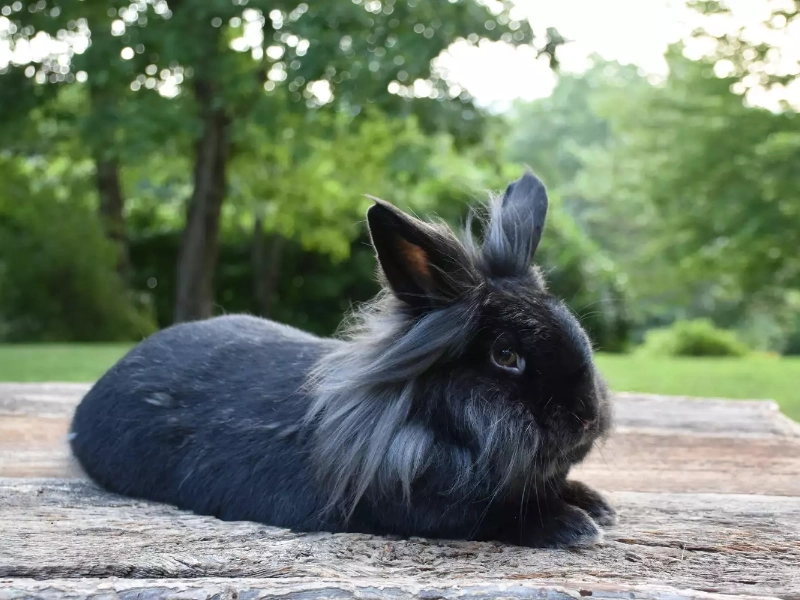3. The Lionhead Rabbit: A Majestic Miniature

Sporting a distinctive mane reminiscent of a jungle king, the Lionhead rabbit is a relatively new entrant to the world of domestic rabbit breeds. Despite its short history, the Lionhead has swiftly won over rabbit enthusiasts with its unique appearance and endearing demeanor. Hailing from Belgium, a hub of rabbit breeding, the Lionhead emerged from careful selective breeding aimed at creating a small rabbit with a dramatic, mane-like fur growth around its head. The first Lionheads arrived in the United States in the 1990s, marking the breed's late 20th-century evolution. However, it wasn't until 2014 that the American Rabbit Breeders Association (ARBA) officially recognized the Lionhead as a distinct breed. This recognition was the culmination of years of dedicated breeding efforts and advocacy by Lionhead enthusiasts who saw in this tiny rabbit a unique and valuable addition to the rabbit breeding community. Undoubtedly, the Lionhead rabbit's mane is one of its most captivating features. This fluffy growth around the head results from a genetic mutation, giving the breed its name. The extent and fullness of this mane can vary widely among individual rabbits, leading to two primary types of Lionheads based on their genetic makeup. Single-maned Lionheads, with one copy of the mane gene, have a less pronounced mane, often appearing as a ring of longer fur around the head, ears, and chin. Some may also sport tufts of longer fur on their hindquarters and chest. Many single-maned Lionheads may lose part or all of their distinctive fur as they age, which can disappoint owners drawn to the breed's signature look. In contrast, double-maned Lionheads possess two copies of the mane gene, resulting in a more dramatic and lush mane that fully encircles the head. These rabbits often display "skirts," or longer fur along their flanks, and the double mane typically remains consistent throughout their lives, preserving the breed's iconic appearance into adulthood. Despite their regal look, Lionhead rabbits are quite small, usually weighing between two and four pounds when fully grown. Their petite size, combined with a friendly and affectionate nature, makes them highly sought-after household pets. Often described as more "dog-like" in their interactions with humans than some other rabbit breeds, Lionheads are known for their playful and curious personalities. One of the most delightful traits of the Lionhead rabbit is its temperament. Generally outgoing, gentle, and social, these bunnies make excellent pets for families, including those with children, under proper supervision. Their innate curiosity drives them to eagerly explore their surroundings and interact with their human caregivers, providing endless entertainment and companionship. However, potential Lionhead owners should be aware that these rabbits have specific care needs, like all breeds. Their charming manes require regular brushing to prevent matting and tangling. While this grooming demand is less intense than that of long-haired breeds like Angoras, owners must still be prepared to invest time. Regular brushing not only maintains the Lionhead's coat quality but also offers a bonding opportunity between rabbit and owner. For housing, Lionheads need a spacious enclosure that allows natural behaviors such as hopping, stretching, and standing on hind legs, just like any rabbit. Despite their small size, they benefit greatly from ample space, with many owners choosing to allow free-range time in a rabbit-proofed room or area of the home for part of the day. Like other domestic rabbit breeds, a Lionhead's diet primarily consists of high-quality hay, which should always be available. This should be supplemented with a variety of fresh vegetables and a small amount of commercial rabbit pellets. As with all rabbits, new foods must be introduced gradually, and owners should be cautious of potentially harmful items.

